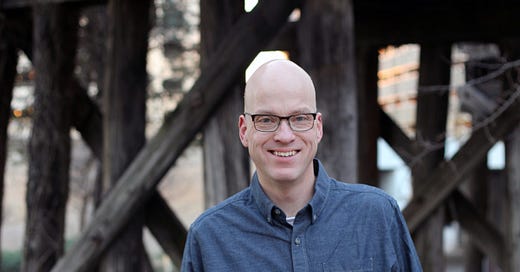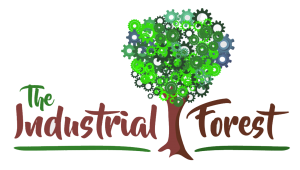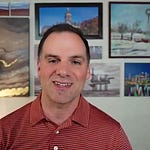Thomas Brewer, TB Group, talks with Jason Speiss about how he has been finding a niche in the marketplace as a crisis consultant and liaison. After accidents or events of crisis, Brewer will go on location and assist wherever the need is the greatest.
Below is the raw, unedited transcript from our artificial intelligence translator.
Thomas Brewer
My name is Thomas Brewer. I'm in Oklahoma City with TB Group L L C. I'm an on site crisis consultant and corporate trainer.
Jason Spiess
Very excited and honored to have emergency services being covered here on the crude life media network. And I hope you don't mind. That's what I kind of lumped in as emergency services. Is that, is that what you guys would be classified in, in the oil and gas industry?
I guess. What kind of niche industry, I guess. Would you guys technically be, you know, if I'm looking in a phone book in 1980 apparently, if I'm going online and doing a Google search, I guess, what do you guys classified under?
Thomas Brewer
It probably would be, it could be emergency services in, in some sense of, of the wording or it could just be a crisis consultant, but it's when we go on site and we deal with a situation that can range from a word workplace injury to a death of an employee, whether it's on site or even off site after hours or you know, any critical incident in which an employee or a company is having to deal with and walking that, that difficult road ahead.
Jason Spiess
Okay. Well, normally I, the way I usually like to do interviews is I, I like to give people a little bit of an elevator pitch if you will not war and peace, but also a little bit longer than an elevator pitch. As a thank you for coming on the program. Of course, here on this program, we'd like to give to the facts. We like to make sure we give out good information.
And so we bring on experts that can speak on what they know to speak on. We don't like to get into speculative different areas that's not good for the oil and gas industry because it is a very, um, you know, what's the word I'm looking for? You need to have a good team in oil and gas in order to keep things moving very systematically and very smoothly, much, much like, you know, manufacturing in a lot of different um um things, you know, you really have to be safe and you really have to have
concentration. Let me just ask you what is the best way to broach a subject like this which, you know, I'm having a hard time as an interviewer to say, you know, this is kind of a rough industry guys.
Thomas Brewer
Absolutely. You know, my background is since 2003, I have served the first responder community as a law enforcement chaplain and, you know, we have had death, one of duty. Guess we, we've had injuries and we have found over the years that if, if the officers and then on the corporate level and then on the oil and gas level, if they don't Deal with the critical incident that they went through that their, basically their heads not in the ball game, um, that their focus is somewhere
else. They're dealing with the grief of the traumatic situation that they went through. They, they're dealing with the loss and because of that, they're not giving 100% focus to the task at hand. And when you do that, when you're not focused at the task before you, um you can get hurt or you can call somebody else to get hurt. Or unfortunately, there could be a death because of the severity of the environment that you're working in.
And if you don't allow these employees in these companies and these teams, the opportunity to process it and have the time to visit with somebody, um about what they've experienced that they might not have their head in the game the way they should. So we're trying to be proactive in getting the word out about care for your employees, care for your company and set the standard so high that you're taking care of them as
a person instead of just as an employee and maybe an employment number. Um So provide for their all for the whole approach of them, their mind, their spirit and their body.
Jason Spiess
Thomas Brewer on the line with us. And TB group L L C is, uh, actually Thomas at T B group LLC if you wanted to get in touch with him, uh, we're talking a little bit about crisis consulting a little bit of emergency services. And, you know, I gotta be honest, the reason why I wanted to have you on the program today was to kind of layer in what you were just talking about with what we have processed over the past several months.
And then of course, uh, several years and what I mean by that is, uh, the Paterson rig, of course, that explosion, uh, that really rocked the industry, uh, in the past few months, really brought emergency services to light. Uh, the Castleton derailment several years ago with the BNSF Railway, brought emergency services to light. You've been using the word proactive, uh, repeatedly and of course emergencies.
The problem is it's an emergency because it happens out of the blue. But there is a way to be somewhat proactive, not 100% but you have this strive much like the airline industry has a strive for zero, um, accidents and the, uh, bacon now with the governor comes out and he wants a zero spill, They'll be the first ones to admit that, you know, they're probably not going to hit 100%, but we're gonna keep trying for it.
So when you talk about being proactive and then we can process kind of what happened on in Oklahoma and up in Castleton with these emergencies. How, how would you then advise people kind of the next step with their organization from today? Going forward, what we've learned and what we need to do going forward.
Thomas Brewer
Oh, absolutely. That's a great question. One of the things that I suggest is having a resource in mind. Uh, you know, it's not if an injury will ever occur within the oil and gas industry. And also, unfortunately, it's not if there will be another death. It's when, um and that's, you know, the unfortunate um aspect of working in the field that there are injuries, there are guests, we never want to see those happen.
We strive for the standards where they won't, but when they do happen, who do you call, Um who is available? Because when you're in that 911 crisis mode of trying to pull all the resources in to respond to a critical incident, um whether it's a death or an injury, that's not the time to start searching for a crisis consultant. Um And that's why I say put a plan in place to have a phone number of an individual and it could be somebody like myself.
Do you have a phone number available to say, hey, we have dealt with this critical situation. We're needing you on site. Um How long will it take you to get here and discuss the amount of time, you would like that provider, that consultant to be on site. And also for the consultant, you need somebody who will be flexible because during those situations, it is very fluid that, you know, everything's changing, you know, more moment by moment during those times.
So, you know, I tell people all the time when I go into a critical situation, whether, you know, no matter what type of company it is, whether there's been a death or an injury. I say I'm not there with an ego, I'm there to serve the company and the individuals and flexibility is the key.
Um I don't come in with an agenda. All I wanna do is serve and helping the company, the individuals, the group affected begin to take one step forward after another and I'm and I'm there to serve. Um not to, you know, build myself up.
Jason Spiess
You know, I've done a number of flood management media, things won two national awards actually for the uh flood flood management side of things. So whenever you see that award winning, that's one of them is the floods that happened in the upper Midwest, we did a lot behind the scenes. And what you're talking about is really an invaluable service because when there's an emergency, a lot of times you have two things that happened.
One is uh people have their jobs to do in the midst of emergency. That's so some people that emergency maybe not directly related to, they still have another job they have to do. And then there's those people that are, those people that are directly related to it, they are not properly equipped to handle an emergency situation. Now, they might know some theory and they might have a couple training sessions, but it's, it's like the big game.
You can't, you know, you can talk about making the playoffs, you can talk about being in the Super Bowl, but until you're actually there and can experience the energy, the change of direction, all the intangibles that life brings. It's just, it's just not the same. So, um, I guess in one hand, I'm kind of validating that what you said is, is really the truth because from a family side of things too, so I'll even go a step further, say, from the professional side with my flood fighting
background, I know what you're talking about with the crisis management, um, type of a time allotment, but from a family side, I'm a small business owner because I always tell people it is so valuable to have a member of a family available 24/7 because you never know what's gonna change in a family. And it's very similar with oil and gas, isn't it?
Thomas Brewer
Absolutely. You know, one of the things that I tell people all the time when I, when I'm meeting with company owners and executives, I make this statement and I say in an ordinary company. Well, you have an 8 to 5 job. Now that's not the oil and gas industry, but in an ordinary company where it's an 8 to 5 job Monday through Friday, an average employee spends more awake hours awake is the key word. They spend more awake hours with their co workers than they might their significant other.
In a given week, you're awake and with your coworkers more than you are your significant other. And because of that, your second, that's a secondary family to you. Now you take that to the oil and gas market where these guys can be 14 on 14 off, they live together, they eat together, they work together. That is a very tight knit community and family. So when the family hurts, everybody hurts.
Jason Spiess
Oh, without a doubt. And that just shows the need for that connectivity more and more. Um Well, I tell you, let's uh let's see if people can get in touch with you if they got any other questions or if there's any emergency services that they might need or crisis consulting. How can people get in touch with you these days? And I know you're on linkedin and uh are you any other, any other social media as well? Make sure you include that.
Thomas Brewer
Oh, absolutely. You can connect with me on Facebook. Um Just search out Thomas um E Brewer E A is Eugene. Um You can also connect with me through um the consulting company TV, group L L C and the website is PB group LLC dot com. And then if you have a crisis and you need an on site crisis, consult To come to allow your employees, your team an opportunity to visit and begin the process and work through the critical incident.
You can call me on my cell phone. Um and I give out my cell phone number. This is my personal number, it's my company number. Um I don't want you have to be calling people all across the country to try to locate me. You call me directly and here's my number. It's 405 8337229. Again, it's 4058337229. And you can, if I don't answer, leave a message, if it's a critical incident and I don't answer and you left the voicemail, text me and say, hey, I need you to return my call as soon as possible.
We need you on site and I go anywhere the invitation is given, will the discuss the fee structure and all the particulars in that and the kind of estimated time that you think you will need a consultant. And I've got a suggestion on that depending what it is, but really, I appreciate the opportunity just to get the word out about the employee assistance program, crisis consultant that you know, allowing your employees and your team an opportunity to deal with this crisis
situation, this critical incident, but they don't just stuff it away, they don't deal with it and then they might turn to, um, habits that are productive that then in turn will hurt them and also hurt your company, then also hurt your bottom line financially because of maybe some mistakes in, in their personal life and professional.
Submit your Article Ideas to The Crude Life! Email studio@thecrudelife.com
About The Crude Life
Award winning interviewer and broadcast journalist Jason Spiess and Content Correspondents engage with the industry’s best thinkers, writers, politicians, business leaders, scientists, entertainers, community leaders, cafe owners and other newsmakers in one-on-one interviews and round table discussions.
The Crude Life has been broadcasting on radio stations since 2012 and posts all updates and interviews on The Crude Life Social Media Network.
Everyday your story is being told by someone. Who is telling your story? Who are you telling your story to?
#thecrudelife promotes a culture of inclusion and respect through interviews, content creation, live events and partnerships that educate, enrich, and empower people to create a positive social environment for all, regardless of age, race, religion, sexual orientation, or physical or intellectual ability.
Sponsors, Music and Other Show Notes
Studio Sponsor: The Industrial Forest
The Industrial Forest is a network of environmentally minded and socially conscious businesses that are using industrial innovations to build a network of sustainable forests across the United States.
Studio Email and Inbox Sponsor: The Carbon Patch Kids
The Carbon Patch Kids are a Content Story Series targeted for Children of All Ages! In the world of the Carbon Patch Kids , all life matters and has a purpose. Even the bugs, slugs, weeds and voles.
The Carbon Patch Kids love adventures and playing together. This interaction often finds them encountering emotional experiences that can leave them confused, scared or even too excited to think clearly!
Often times, with the help of their companions, the Carbon Patch Kids can reach a solution to their struggle. Sometimes the Carbon Patch Kids have to reach down deep inside and believe in their own special gift in order to grow.
The caretakers of Carbon Patch Kids do their best to plant seeds in each of the Carbon Patch Kids so they can approach life’s problems with a non-aggressive, peaceful and neighborly solution.
Carbon Patch Kids live, work and play in The Industrial Forest.
Click here for The CarbonPatchKids’ website
Featured Music: Alma Cook
Click here for Alma Cook’s music website
Click here for Alma Cook’s day job – Cook Compliance Solutions
For guest, band or show topic requests, email studio@thecrudelife.com
Spread the word. Support the industry. Share the energy.



















Share this post